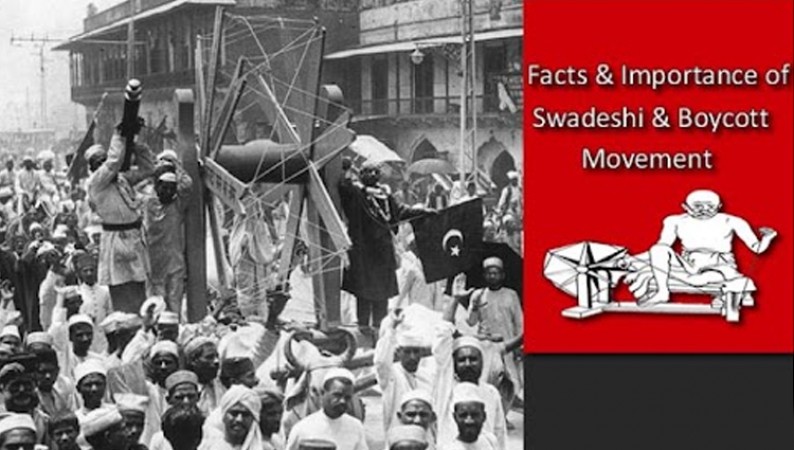
This Day in History: On July 17, 1905, a significant event took place in Bagarhat, marking an important milestone in the Indian independence movement. The decision to boycott British-made goods was made, signaling a turning point in the fight against British colonial rule and economic exploitation.
Bagarhat, a town located in the Bengal region of British India, was bustling with activity as local leaders, intellectuals, and activists gathered to discuss the dire political and economic situation faced by Indians under British rule. The meeting was attended by prominent figures who had long been advocates of freedom and had grown weary of British dominance over the Indian economy.
The early 20th century was a time of increasing frustration among Indians, who had been subjugated by British rule for almost two centuries. The British had imposed heavy taxes and implemented policies that favored British industries, leaving Indian businesses and craftsmen at a severe disadvantage. Indians were forced to rely on British-made goods, which flooded the Indian markets and stifled local industries. This economic exploitation fueled resentment and a growing desire for self-reliance and independence.
At the Bagarhat gathering, passionate speeches echoed through the air as leaders voiced their concerns and proposed strategies to combat British economic hegemony. One voice that stood out was that of Mohan Das Karamchand Gandhi, a young lawyer who had recently returned to India after spending over two decades in South Africa, where he had developed his philosophy of nonviolent resistance.
Gandhi passionately argued that a boycott of British-made goods would be an effective means of nonviolent protest against British economic exploitation. He believed that Indians could reclaim their economic independence by rejecting British products and embracing indigenous goods. Gandhi's philosophy, known as swadeshi, emphasized the use of locally produced goods and the revitalization of traditional Indian industries.
The attendees at Bagarhat were inspired by Gandhi's vision and recognized the power of economic resistance. They unanimously adopted a resolution to boycott British-made goods and promote Indian-made products instead. The resolution called for the establishment of swadeshi stores and the encouragement of indigenous industries to provide alternatives to British goods.
The Bagarhat boycott sparked a nationwide movement, with similar boycotts being organized in towns and cities across India. People from all walks of life enthusiastically participated, pledging to reject British goods and support Indian industries. Swadeshi stores, cooperative societies, and cottage industries flourished as Indians united in their determination to break free from economic dependence on the British.
The boycott movement not only impacted the British economically but also played a crucial role in fostering a sense of national unity and pride among Indians. It became a powerful symbol of resistance and resilience in the face of colonial oppression. The success of the boycott led to an increase in nationalist sentiment and strengthened the resolve of Indians to fight for their freedom.
The Bagarhat boycott and the subsequent swadeshi movement served as a catalyst for the larger Indian independence movement. It demonstrated that Indians had the power to challenge British dominance and paved the way for future acts of civil disobedience and nonviolent protest.
Today, the Bagarhat boycott stands as a testament to the indomitable spirit of the Indian people and their unwavering commitment to freedom and self-reliance. It serves as a reminder of the transformative power of unity and peaceful resistance in the pursuit of justice and liberation.